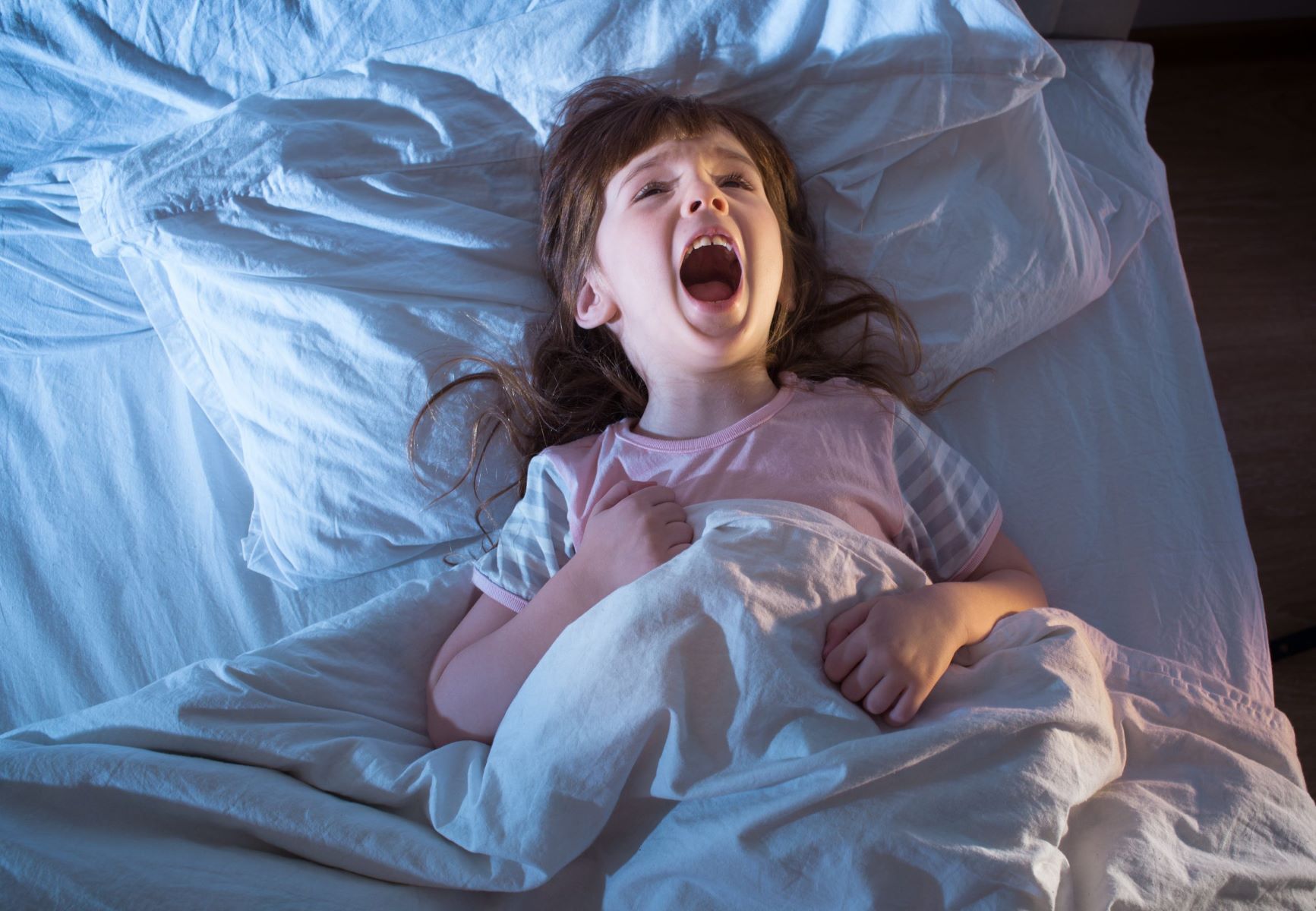As the moon rises and the world drifts into slumber, a shadowy realm of night terrors emerges, affecting both children and adults alike. This quiz will challenge your understanding of these nocturnal disturbances and shed light on their complexities. Are you ready to confront the enigma of night terrors? Let‘s begin!
Questions Overview
1. What is the primary difference between night terrors and nightmares?
Night terrors occur during REM sleep, while nightmares occur during non-REM sleep.
Night terrors are more common in adults, while nightmares are more common in children.
Night terrors involve intense fear and screaming, while nightmares are vivid, disturbing dreams.
Night terrors are remembered upon waking, while nightmares are not.
2. At what stage of sleep do night terrors typically occur?
Stage 1
Stage 2
Stage 3 (deep sleep)
REM sleep
3. Which age group is most commonly affected by night terrors?
Infants
Toddlers
Children aged 3-12
Teenagers
4. What is a common trigger for night terrors?
Excessive screen time before bed
Stress or anxiety
Eating a heavy meal before sleep
Sleeping in a new environment
5. Which of the following is NOT a typical symptom of a night terror?
Screaming or shouting
Rapid breathing and heart rate
Sleepwalking
Vivid recollection of the event
6. How long do night terrors typically last?
A few seconds
A few minutes
10-20 minutes
30-60 minutes
7. What is a recommended way to manage night terrors in children?
Waking the child up during the night terror
Allowing the child to watch TV before bed
Maintaining a consistent bedtime routine
Giving the child a sugary snack before bed
8. Which of the following is a potential long-term effect of frequent night terrors?
Chronic insomnia
Daytime sleepiness
Increased risk of sleep apnea
Development of other sleep disorders
9. Can adults experience night terrors?
No, only children experience night terrors
Yes, but it is less common than in children
Yes, and it is equally common in adults and children
No, adults only experience nightmares
10. Which part of the brain is believed to be involved in night terrors?
Cerebellum
Amygdala
Hippocampus
Thalamus
Can Your Friends Do Better Than You in This Quiz?
Share this quiz with your friends and compare results.
Was this page helpful?
More Popular Health & Wellness Quizzes:
-
Bipolar or ADHD Quiz
-
Sepsis Quiz
-
Medical Terminology Quiz
-
Body Regions Quiz
-
Puberty Quiz
-
Sexual Harassment Quiz











